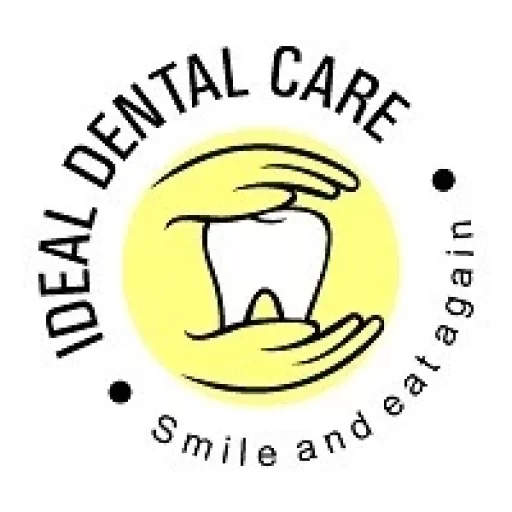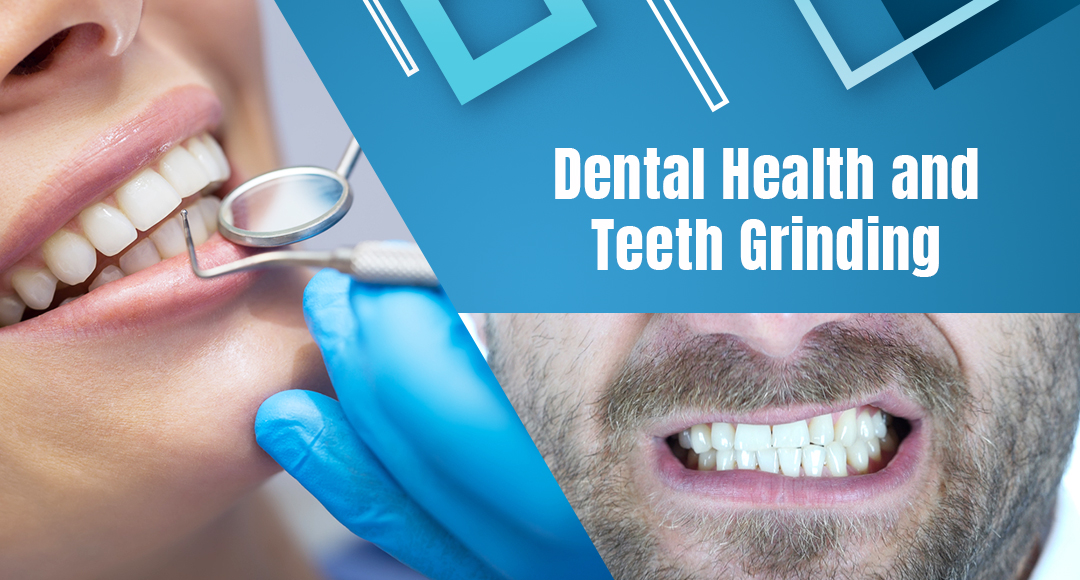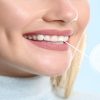DENTAL HEALTH AND TEETH GRINDING
Most people are likely to grind and clench their teeth depending on their emotions. Occasional teeth grinding, medically known as bruxism, is usually harmless. However, teeth can be destroyed when teeth grinding occurs regularly, and other oral health concerns might ensue.
Although stress and worry can induce teeth grinding, it is more likely to occur during sleep and is caused by an irregular bite or missing or crooked teeth. A sleep problem, such as sleep apnea, can also cause it.
This blog talks about how a person can find out if he grinds his teeth, Is grinding teeth is harmful, how they can stop grinding their teeth, and do children grind teeth.
How Do I Find Out if I Grind My Teeth?
Most individuals do not realise that they grind their teeth because it frequently occurs during sleep. Often, a loved one who hears the grinding at night will inform the person that they are grinding their teeth. On the other hand, a dull, continuous headache or a sore jaw when you wake up is a Symptom of bruxism.
Consult a dentist if you believe you are brushing your teeth. They examine your mouth and jaw for any signs of bruxism, such as jaw pain and excessive wear on your teeth.
Why Is Teeth Grinding Harmful?
In some circumstances, chronic tooth grinding can cause fracturing, loosening, or loss of teeth. Chronic grinding can wear teeth to stumps. Bridges, crowns, partial dentures, root canals, implants, and even complete dentures may be required when these events occur.
Not only may severe grinding damage teeth and result in tooth loss, but it can also impair your jaws, create or worsen TMD/TMJ, and even change the look of your face.
What Can I Do to Stop Grinding My Teeth?
Dentists can make you a night guard to keep your teeth from grinding as you sleep. Learn ways to cope with your stress if it’s causing you to grind teeth. Some of the options that might be suggested include going to stress counselling, beginning an exercise regimen, seeing a physical therapist, or getting a prescription for muscle relaxants. If a sleeping issue causes the grinding, treating it may help to minimise or eradicate the grinding habit.
Other ways to stop teeth grinding include:
-
- Avoid or limit caffeine-containing foods and beverages such as colas, chocolate, and coffee.
-
- Stay away from alcohol. Grinding becomes intense after consuming alcohol.
-
- Avoid chewing on pens, pencils, or other non-food items. Avoid chewing gum as it encourages your jaw muscles to clench more frequently and increases your risk of tooth grinding.
-
- Practice avoiding jaw clenching and teeth grinding. If you find you are clenching or grinding your teeth during the day, place the tip of your tongue between your teeth. This exercise teaches your jaw muscles to relax.
-
- Relax your jaw muscles at night by putting a warm washcloth on your cheek in front of your earlobe.
Do Children Grind Their Teeth?
Adults are not the only ones who grind their teeth. Between 15% and 33% of kids clench their teeth. When baby teeth erupt, permanent teeth erupt are the two occasions when teeth grinding is most prevalent in children. After these two sets of teeth have fully developed, most youngsters lose the tendency to teeth grinding.
Children are more likely to grind their teeth at night than during the day. However, the cause of teeth grinding in children is unknown. Possible explanations include:
-
- Misaligned teeth or irregular upper-lower tooth contact.
-
- Diseases.
-
- Other medical issues (such as nutritional deficiencies, pinworm, allergies, and endocrine disorders).
-
- Psychological variables like stress and worry.
The grinding of baby teeth infrequently causes problems. However, clenching and grinding the teeth can result in TMD, TMJ pain, headaches, and jaw pain. See your dentist if your child’s teeth appear worn or complain of tooth sensitivity or discomfort.
Tips for getting a child to quit grinding their teeth include:
-
- Reduce your child’s tension, especially right before bedtime.
-
- Try massage and stretching activities to relax the muscles.
-
- Make sure your child’s diet is high in water. Teeth grinding may be connected to dehydration.
-
- If your child grinds their teeth, ask your dentist to keep an eye on them.
With preschool-aged children, no intervention is usually required. On the other hand, older children may need temporary crowns or other techniques, such as a night guard, to prevent grinding.




